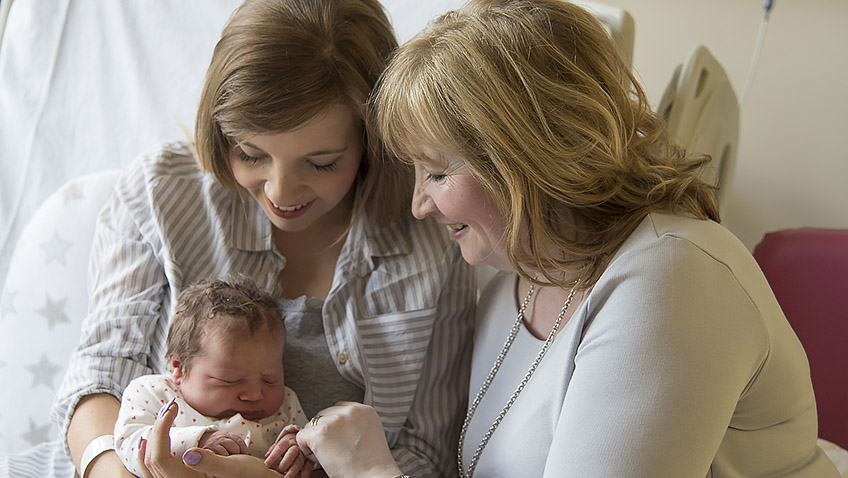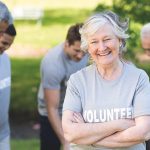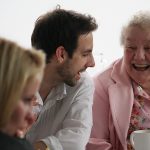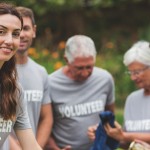Jess Thompson shares her experience as a volunteer with Home-Start West Dorset:
Every week, for the past seven months, I have been taking delightful country strolls with three energetic companions: Oliver, aged six, Katie, who’s four and Darcy, who’s just turned one. Come rain or shine, as soon as I arrive at their house, I’ll hear the words, ‘Shall we go for a walk?’ and Katie will be off to fetch her wellies or flipflops – depending on the season. One particular day that’s still remembered was during April, when the weather was so hot we decided to take an impromptu dip in the river (this is mostly discussed by Ollie, who’d decided not to come with us, and clearly still regrets it!)
The reason I visit is because I’m lucky enough to volunteer for Home-Start West Dorset, the local wing of a national charity that works with families who are in need of practical help and emotional support. It’s a brilliant idea, where people with parenting experience help other parents – the only criteria being that the family being supported has a child under five.
And there are so many different reasons why families, of all shapes and sizes, need support.
‘Somehow, it just worked.’
Pat Barwell has been visiting Juliette Ledger and her twins, Freya and Ada, for the past two and a half years. ‘I did my ten-week training course,’ Pat remembers, ‘which was brilliant, I learnt so much. But even though it gave me tremendous confidence, when I was told I’d been matched with Juliette I was a little nervous. I’m in my seventies and Juliette was in her twenties then, so I worried we wouldn’t have much in common. But somehow, it just worked.’
‘Pat’s been a brilliant friend and very supportive,’ says Juliette. And watching them laughing and remembering all the things they’ve done together, it’s clear the friendship goes deep.
Freya and Ada are beautiful three-year-old, identical twins, with bright blonde hair and dressed in matching yellow dresses. What they also share, however, is severe autism and global development delay.
Online research
When I ask Juliette questions about the condition, she answers with the confidence of a professional. ‘Which isn’t surprising,’ Pat tells me, her voice full of admiration, ‘Juliette’s spent hours online, researching every aspect of how to best help her children.’
‘They’re still in nappies and will be for a long time,’ says Juliette. ‘They can’t talk and need constant one to one attention because they have this thing where they eat everything: sticks, stones, flowers. And they’re so fast, they’ll instantly run away.’
‘And just having twins is hard anyway, isn’t it?’ Pat says gently. ‘I can understand why Juliette finds it hard to go out. (Just) to get them dressed…you get one dressed and then you start on the other, then maybe you’ve got to change the first…’ They look at each other and their smiles show a wealth of shared understanding.
Amazed and humbled
‘As a volunteer I’m constantly amazed and humbled by what other families go through, and how brilliantly they cope. Within my family (the family I visit), in the last year the parents, Donna and Alex, have had to deal with Donna’s post-natal depression and severe anxiety, a major flair up of her Crohn’s Disease and her ongoing OCD; there’s been a diagnosis of epilepsy for their youngest daughter, Darcy, and hearing aids for Oliver. Not to mention the fact that Alex is blind in one eye, meaning he can’t drive, and has stage three kidney disease; whilst Darcy’s fits have worried Katie so much she’s started to stutter at home.
‘And yet, every week I visit, the house is spotless, they’ve all got smiles on their faces and, as Alex often tells me, ‘There’s people far worse off than we are.’
When I ask Donna what she likes about my visits, she says that I’m the one person who asks her every week how she is (as opposed to how the children are), and then has the time to listen. And it’s great that we’ve been able to work on getting extra funding for the family and have discussed things like trying to cut down on washing, as well as sugar in the children’s diets.
With Pat and Juliette, listening is also a key part of what Pat can offer. ‘It’s great,’ Juliette says, ‘her being here so I can chew her ear off, or even scream. You know, just having someone to talk to.’
Invaluable help
Pat’s help is invaluable when it comes to going out. ‘We both like going around the charity shops,’ she says, ‘then having a coffee. And the girls sometimes used to sleep in the buggy when we did that.’ Again they smile, and it’s easy to understand the significance of those tiny breaks for their mum.
The twins’ sleep has always been erratic, meaning Juliette and her partner Dan have now resorted to sleeping in shifts in order to cope. ‘Once they didn’t sleep for four days and nights,’ Juliette recalls. ‘I’ve been told they need specialist cots to keep them safe, but because they’re currently sleeping in a very small bedroom we can’t fit them in.’
When I ask Juliettte about some of the joys of having the twins, her face immediately lights up. ‘They’re so energetic, they love the swings, climbing, and they absolutely love water.’
And whilst Pat thinks the twins are ‘lovely,’ she’s equally proud of Juliette: ‘You just couldn’t have a better mum.’
Just as I’m leaving the twins’ house, Freya allows me to lift her up – at which point I feel her amazing energy and have such a burst of affection for this little girl. And I’m reminded of how lovely it is, carrying Katie back from our walks on the rare occasions she manages to persuade me that I should.
If you’re lucky enough to have kids, it’s a wonderful thing to experience. Then, usually a few years on, Home-Start can give you a different kind of wonderful: the privilege of helping other people’s children and temporarily being part of their family too.’
Volunteers Training Courses regularly take place across the UK and involve forty hours training spread over ten weeks. Volunteers need to have parenting experience and 2-3 hours a week available to support a family. Placements usually last six to 12 months.
To find your local branch go to www.home-start.org.uk




